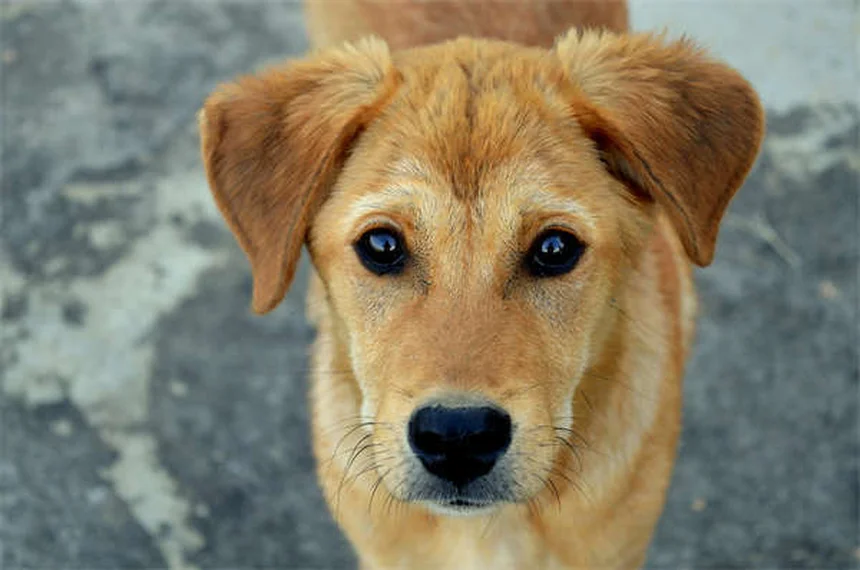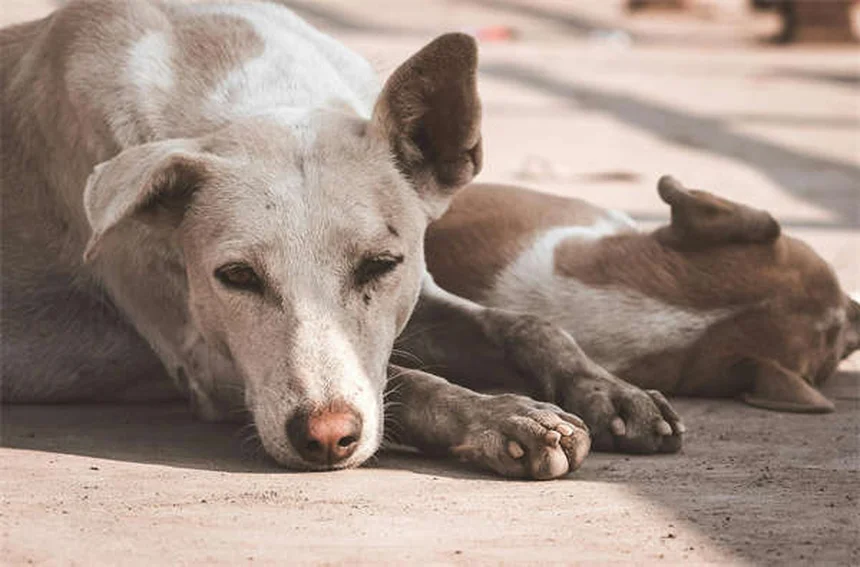7 Reasons Your Cat Is Losing Weight (And What to Do)
Why is my cat losing weight? The answer is: There are several possible reasons, ranging from simple dietary issues to serious health conditions. As a cat owner myself, I know how worrying it can be when your furry friend starts looking slimmer. The truth is, unexplained weight loss in cats always warrants a vet visit - it's better to be safe than sorry!Here's what you need to understand: Your cat's fluffy coat can hide weight loss until it becomes significant. That's why we recommend regular weigh-ins at home or during vet visits. Did you know that just 10% body weight loss in cats is considered clinically significant? Whether your cat is young or senior, sudden weight changes could signal anything from intestinal parasites to diabetes or hyperthyroidism.In this guide, we'll walk you through the 7 most common causes of feline weight loss, how to spot the warning signs, and when it's time to call the vet. Trust me, as someone who's been through this with my own cats, early detection makes all the difference in treatment success!
E.g. :5 Vet-Approved Ways to Calm an Anxious Cat Naturally
- 1、Is Your Cat Looking Slimmer? Here's What You Need to Know
- 2、The Top 7 Reasons Your Cat Might Be Shedding Pounds
- 3、Serious Health Conditions That Cause Weight Loss
- 4、When Should You Really Worry?
- 5、Special Considerations for Senior Cats
- 6、Your Action Plan for a Slimming Cat
- 7、Your Burning Questions Answered
- 8、The Hidden Dangers of Rapid Weight Loss in Cats
- 9、Nutritional Solutions You Haven't Tried Yet
- 10、Environmental Factors You're Overlooking
- 11、Preventive Measures for the Future
- 12、When to Consider Specialized Care
- 13、FAQs
Is Your Cat Looking Slimmer? Here's What You Need to Know
Hey there fellow cat lover! Have you noticed your furry friend looking a bit... well, less furry lately? Weight loss in cats can be sneaky - that fluffy coat of theirs does an amazing job hiding changes until they become really obvious. Let's talk about why this might be happening and what you can do about it.
The Silent Alarm of Weight Loss
When your cat starts dropping pounds without you trying to help them slim down, especially if they're in their golden years, it's time to pay attention. This isn't something to brush off - it could signal anything from simple lifestyle changes to serious health concerns.
Did you know that just like us humans, cats can experience weight fluctuations for dozens of reasons? The tricky part is figuring out whether it's something harmless or a red flag. That's why your first move should always be scheduling a vet visit. They'll run tests to uncover what's really going on beneath that adorable fur.
The Top 7 Reasons Your Cat Might Be Shedding Pounds
1. The Case of the Missing Meals
Here's something funny - sometimes your cat isn't eating as much as you think! Let me ask you this: Have you considered that your other pets might be food thieves? That's right - your dog or another cat could be swiping meals when you're not looking.
Other food-related issues to consider:
- Recent food brand changes (calorie counts vary wildly between brands)
- Inconvenient food bowl placement (arthritis can make jumping painful)
- Stress from household changes affecting appetite
 Photos provided by pixabay
Photos provided by pixabay
2. Unwanted Guests: Intestinal Parasites
Yuck! Nobody wants to think about worms, but they're a common culprit behind weight loss. These freeloaders can come from:Mom cat (passed to kittens during birth or nursing)Outdoor adventures (hunting prey or contaminated grass)Grooming habits (licking paws that walked through infected areas)
The good news? A simple dewormer from your vet can kick these pests to the curb and get your cat back on track.
Serious Health Conditions That Cause Weight Loss
3. Feline Diabetes: The Sugar Problem
Diabetes isn't just a human problem - our feline friends can develop it too. Watch for these warning signs:Excessive thirstFrequent urinationWeight loss despite good appetite
Treatment typically involves insulin therapy and dietary changes. With proper management, many diabetic cats live happy, healthy lives!
4. Hyperthyroidism: The Overactive Metabolism
Middle-aged and senior cats often face this condition where their thyroid goes into overdrive. Imagine feeling hungry all the time but still losing weight - that's what these poor kitties experience.
| Symptom | Percentage of Affected Cats |
|---|---|
| Weight loss | 95% |
| Increased appetite | 85% |
| Hyperactivity | 75% |
When Should You Really Worry?
 Photos provided by pixabay
Photos provided by pixabay
2. Unwanted Guests: Intestinal Parasites
These scary-sounding viruses all share weight loss as a common symptom. While they have different causes and treatments, early detection is key to managing them effectively.
Here's a comforting thought: Many cats with these conditions live quality lives with proper care. Your vet can recommend the best approach based on your cat's specific diagnosis.
6. Kidney Disease: The Silent Threat
As cats age, their kidneys can start to decline. This gradual process often shows up as weight loss before other symptoms appear. Regular blood work and urinalysis can catch it early when management is most effective.
Special Considerations for Senior Cats
7. The Cancer Concern
While it's scary to think about, various cancers can cause weight loss in cats. Diagnostic tools have come a long way, and many forms are treatable when caught early. Your vet might recommend:
- Blood tests
- Imaging (X-rays or ultrasounds)
- Biopsies
Remember this: Not all weight loss means cancer, but it's always worth investigating.
 Photos provided by pixabay
Photos provided by pixabay
2. Unwanted Guests: Intestinal Parasites
Just like humans, cats naturally lose some muscle mass as they age. But here's the thing - while some weight loss is normal, dramatic changes aren't. Senior cats need extra attention with:Bi-annual vet checkupsSpecialized senior blood panelsDiet adjustments for changing needs
Your Action Plan for a Slimming Cat
When to Sound the Alarm
Here's my rule of thumb: If you notice weight loss combined with any of these, get to the vet ASAP:VomitingDiarrheaLoss of appetiteBehavior changes
Even without these symptoms, unexplained weight loss deserves professional attention. Your vet has records of your cat's previous weights and can confirm if there's real cause for concern.
Treatment Options That Work
The approach depends entirely on the underlying cause. Many conditions respond well to:MedicationsPrescription dietsLifestyle adjustments
Here's a pro tip: Cats over 11 benefit from twice-yearly vet visits instead of annual ones. This helps catch issues early before weight loss becomes noticeable.
Your Burning Questions Answered
Why is my cat losing weight but acting normal?
This is actually quite common in early stages of many conditions. The body often shows signs before behavior changes. Conditions like diabetes, kidney disease, and hyperthyroidism frequently start this way.
How skinny is too skinny?
Weight alone doesn't tell the whole story. A better gauge is body condition scoring that considers:
- Rib visibility
- Waist definition
- Muscle mass
Remember, you're not alone in this. Countless cat parents face the same concerns. The important thing is taking action and working with your vet to get your feline friend back to their healthy, happy self!
The Hidden Dangers of Rapid Weight Loss in Cats
Metabolic Mayhem: What Happens Inside
When your cat loses weight too quickly, their body starts breaking down fat stores at an alarming rate. This can actually overwhelm their liver, leading to a dangerous condition called hepatic lipidosis. I've seen cats develop this after just a few days of not eating properly!
Here's something that might surprise you - cats aren't designed to fast like some animals. Their bodies immediately start using protein for energy when they don't eat, which is why you'll notice muscle loss alongside fat reduction. That's why we need to act fast when we see unexplained weight changes.
The Emotional Toll on Your Feline Friend
You might not realize this, but weight loss can seriously affect your cat's mood and behavior. Have you noticed your usually social cat hiding more often? That's because feeling physically weak makes them more vulnerable, triggering their instinct to find safe spaces.
I've worked with many cats who became irritable or anxious during periods of weight loss. One client's cat, Mr. Whiskers, stopped playing with his favorite feather toy entirely until we got his thyroid condition under control. The good news? He bounced back to his playful self within weeks of starting treatment!
Nutritional Solutions You Haven't Tried Yet
Boosting Calories Without Overfeeding
If your vet gives the green light, try these sneaky calorie boosters:
- A teaspoon of plain chicken fat drizzled over food
- High-calorie nutritional gels (they lick it right off your finger!)
- Warming wet food to enhance aromas for picky eaters
Let me share a trick I learned from a veterinary nutritionist - rotating between 3-4 different protein sources can stimulate appetite better than sticking to one flavor. Just introduce new foods gradually to avoid tummy upset.
The Hydration Connection
Many cat owners focus solely on food, but dehydration can accelerate weight loss in ways you wouldn't expect. A cat who isn't drinking enough may eat less because digestion requires proper hydration.
Try placing multiple water bowls around your home, or better yet, invest in a cat water fountain. The moving water often entices cats to drink more. I've seen water intake double just by switching from a bowl to a fountain!
Environmental Factors You're Overlooking
Stress Triggers in Your Home
Cats are creatures of habit, and these common household changes can cause stress-related weight loss:New furniture arrangementsRecent construction noiseChanges in your work scheduleIntroduction of new pets
Here's a funny story - one of my clients couldn't figure out why her cat stopped eating until we realized the new Alexa device was playing random sounds that scared him! We moved it to another room and his appetite returned within days.
The Multi-Cat Household Challenge
If you have multiple cats, you might not realize one isn't getting enough food. Try this experiment: feed cats separately for a week and measure exactly how much each eats. You might discover one is being bullied away from the food bowl!
| Feeding Solution | Effectiveness for Multi-Cat Homes |
|---|---|
| Separate rooms | 90% success rate |
| Microchip feeders | 85% success rate |
| Elevated feeding stations | 70% success rate |
Preventive Measures for the Future
Creating a Weight Monitoring Routine
Here's what I do with my own cats - we have a monthly "weigh-in" day where I record their weight on a simple chart. This helps spot trends before they become serious problems. You can use a regular bathroom scale (weigh yourself holding the cat, then subtract your weight alone).
Pro tip: Always weigh at the same time of day, preferably before meals. Weight can fluctuate by up to 4 ounces throughout the day depending on food and water intake!
Building a Healthier Lifestyle
Did you know that just 5-10 minutes of daily play can make a huge difference in your cat's metabolism and appetite? What if I told you that a bored cat is more likely to become a skinny cat? Interactive toys that mimic prey movements trigger their natural hunting instincts, which then stimulates their desire to eat.
I recommend keeping a variety of toys and rotating them weekly to maintain interest. Even simple things like cardboard boxes or paper bags can provide mental stimulation that supports overall health.
When to Consider Specialized Care
The Benefits of a Veterinary Nutritionist
For persistent weight issues, a board-certified veterinary nutritionist can create customized meal plans. They consider factors most vets don't have time for, like:Your cat's individual metabolismSpecific nutrient requirementsPreparation methods that preserve nutrients
One client saw dramatic improvements after switching to a nutritionist-designed homemade diet (prepared under veterinary supervision, of course). Her cat gained back 2 pounds in 3 months after struggling for a year with commercial foods.
Alternative Therapies Worth Exploring
While traditional medicine should always come first, some complementary approaches have shown promise:
- Acupuncture for appetite stimulation
- Pheromone therapy for stress-related eating issues
- Massage to improve circulation and digestion
Remember, always consult your vet before trying alternative treatments. What works for one cat might not work for another, and safety should always come first!
E.g. :Why is My Cat Losing Weight? Weight Loss in Cats | PetMD
FAQs
Q: Why is my cat losing weight but still eating normally?
A: This is one of the most common concerns we hear from cat owners! If your cat is eating well but still losing weight, it could point to several underlying issues. Hyperthyroidism is a top suspect - this condition revs up your cat's metabolism, making them burn calories faster than they can replace them. Other possibilities include diabetes (where the body can't properly use nutrients) or intestinal parasites that steal nutrition. Even certain cancers can cause this pattern. The bottom line? Any unexplained weight loss deserves a vet visit, even if your cat seems otherwise fine. We recommend keeping a food diary and noting any changes in water consumption too - these details help your vet diagnose the issue faster.
Q: How can I tell if my senior cat is losing too much weight?
A: Great question! With older cats, some weight loss can be normal due to muscle loss, but here's how to spot when it's concerning: First, learn to body condition score your cat - you should be able to feel (but not see) their ribs with light pressure. Second, monitor their weight monthly - a loss of more than 1 pound in an average-sized cat is significant. Pro tip: Use the same scale each time for accuracy. Senior cats are prone to conditions like kidney disease and hyperthyroidism that cause weight loss, so we recommend bi-annual vet checkups after age 11. Remember, early detection is key to managing these conditions effectively!
Q: Can stress cause weight loss in cats?
A: Absolutely! Many people don't realize how sensitive cats are to stress. Changes like new pets, home renovations, or even schedule changes can trigger weight loss. Here's why: Stress can decrease appetite and increase metabolism. Some stressed cats develop digestive issues that affect nutrient absorption. The solution? First, identify and minimize stressors when possible. Provide quiet spaces and maintain routines. For persistent issues, your vet might recommend appetite stimulants or anti-anxiety medications. We've found that puzzle feeders and vertical spaces often help stressed cats feel more secure and eat better.
Q: What should I feed my underweight cat to help them gain weight?
A: Before changing your cat's diet, always consult your vet - the right approach depends on the cause of weight loss. That said, here are some general tips we recommend: High-calorie nutritional supplements can boost intake without volume. Wet food is often more appealing and calorie-dense than dry. Warming food enhances aroma and palatability. For cats with dental issues, soft or pâté-style foods are easier to eat. In some cases, prescription recovery diets are needed. Remember: Sudden diet changes can cause digestive upset, so transition slowly over 7-10 days unless your vet advises otherwise.
Q: How quickly should I be concerned about my cat's weight loss?
A: Here's our professional advice: Don't wait if you notice significant changes. While gradual weight loss over months might suggest chronic conditions, rapid loss (over weeks) could indicate acute illness. Either way, schedule a vet visit ASAP. We tell clients to be especially concerned if weight loss accompanies other symptoms like vomiting, diarrhea, or behavior changes. Proactive care makes all the difference - many conditions are more manageable when caught early. Keep records of your cat's weight history and eating patterns; this information helps your vet determine the urgency of the situation.







